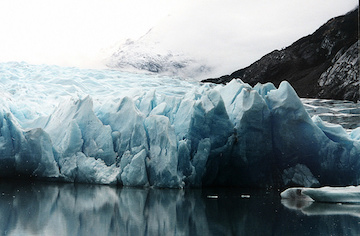420816-Loud Glaciers.jpg

Scientists have found that melting glaciers can be louder than anything else in the oceans. Credit: public domain
It’s hard to think of anything quieter than melting ice. But when the melting ice weighs thousands of tons and is thousands of years old, it can sound like a truckload of Rice Krispies dumped into a swimming pool.
In fact, scientists have found that melting glaciers can be louder than anything else in the oceans — louder even than hurricanes. Glaciers were already known to create some impressive underwater sounds. When a chunk breaks off to form an iceberg, the sound can be heard hundreds of miles away.
In 2015, though, researchers found that melting icebergs are loud, too. The scientists listened to chunks of melting iceberg in the lab. They also monitored the sound in three bays where glaciers feed out to sea. They found that the background noise was louder in warmer bays, where the glaciers were melting faster. And the noise itself matched what they heard from the melting ice.
The sound comes from tiny bubbles of air trapped in the ice. Over thousands of years, the bubbles are squeezed by the weight of the ice above them, deforming their shape. When the ice melts, a bubble snaps back to its original shape, creating a “pop.” And many millions of bubbles can be released every second.
With glaciers melting faster than ever, that could have an impact on marine life. Some seals, for example, use background sounds to hide from killer whales. So the snap, crackle, and pop of melting glaciers could change how seals and other animals survive in the years ahead.

